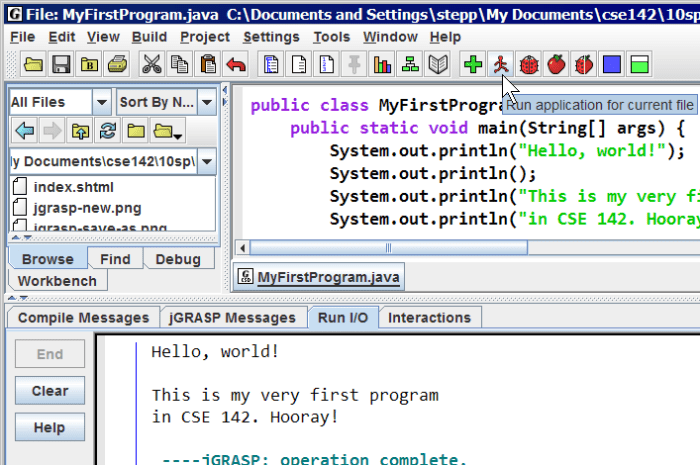Building java programs 4th edition pdf – Building Java Programs, 4th Edition PDF is a comprehensive guide for programmers seeking to master the fundamentals of Java programming. This authoritative text provides a thorough exploration of Java concepts, from basic data types and control flow to advanced features such as generics and lambda expressions.
Through a combination of clear explanations, practical examples, and real-world case studies, this book empowers readers to develop robust, efficient, and maintainable Java applications. Its focus on object-oriented design principles and the latest Java features ensures that readers are equipped with the skills and knowledge necessary to thrive in the modern software development landscape.
Introduction
Java programming is a powerful and versatile language used in a wide range of applications, from desktop software to mobile apps and enterprise systems. It is known for its platform independence, security, and object-oriented design principles.
“Building Java Programs, 4th Edition” is a comprehensive textbook designed to provide a thorough understanding of Java programming concepts and techniques. It is intended for beginners with little or no prior programming experience, as well as for students and professionals looking to enhance their Java skills.
Core Java Concepts
At the core of Java lie fundamental concepts such as data types, variables, operators, and control flow. These elements form the building blocks of any Java program and are essential for understanding how the language works.
Object-oriented programming (OOP) is a key paradigm in Java. It involves organizing code into reusable components called classes and objects. OOP principles like encapsulation, inheritance, and polymorphism enable code reusability, maintainability, and extensibility.
The Java Development Kit (JDK) is a software development environment that provides the tools and libraries necessary for compiling, running, and debugging Java programs.
Object-Oriented Design and Implementation

Object-oriented design involves applying OOP principles to create robust and maintainable software systems. Encapsulation hides implementation details within objects, while abstraction focuses on defining interfaces rather than specific implementations.
Classes are blueprints for creating objects, which are instances of those classes. Inheritance allows classes to inherit properties and methods from parent classes, promoting code reusability and extensibility.
Data Structures and Algorithms
Data structures provide organized ways to store and manage data. Java offers a range of data structures, including arrays, linked lists, stacks, and queues. Each data structure has its own strengths and weaknesses, making it suitable for different scenarios.
Algorithms are step-by-step procedures for solving specific problems. Java provides a rich library of algorithms for tasks like searching, sorting, and manipulating data structures.
Graphical User Interfaces (GUIs)

Java supports the development of graphical user interfaces (GUIs) using libraries such as Swing or JavaFX. These libraries provide components like buttons, labels, and text fields, enabling developers to create visually appealing and user-friendly interfaces.
Event handling is crucial in GUI programming. It allows programs to respond to user interactions, such as button clicks or mouse movements.
Advanced Java Features

Java offers advanced features that enhance code optimization, flexibility, and readability. Generics allow for the creation of type-safe collections that can store different types of data.
Lambda expressions provide a concise way to define anonymous functions, while streams offer a powerful mechanism for processing data in a declarative manner.
Case Studies and Projects: Building Java Programs 4th Edition Pdf
Case studies and projects provide practical examples of how Java concepts are applied in real-world scenarios. They showcase the design decisions, implementation details, and challenges faced during the development process.
These projects help students and professionals understand how to apply Java skills to solve real-world problems and develop robust and scalable software solutions.
Q&A
What are the prerequisites for using this book?
A basic understanding of programming concepts and familiarity with an object-oriented programming language are recommended.
Is this book suitable for beginners?
Yes, this book is designed to be accessible to both beginners and experienced programmers alike. It provides a solid foundation in Java fundamentals and gradually introduces more advanced concepts.
What are the key features of this book?
Comprehensive coverage of Java concepts, practical examples, real-world case studies, focus on object-oriented design principles, and up-to-date coverage of the latest Java features.